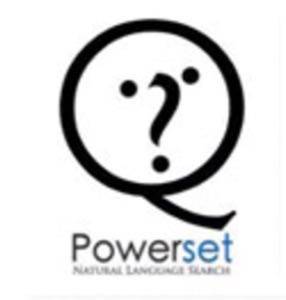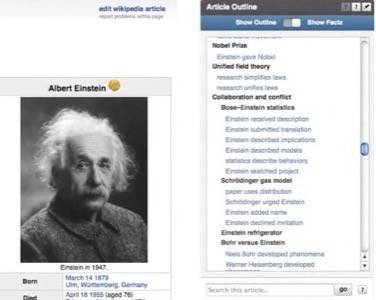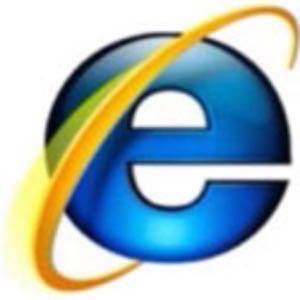What can the plan be with Microsoft’s purchase of hot startup Powerset? The 3-year old company, founded by Dr Barney Pell, recently launched a semantic search experience for Wikipedia.

It is doubtful that Microsoft bought the company just to enhance Live Search. Possibly the plan is to replicate the Wikipedia solution, then incorporate Powerset into Internet Explorer. In this post we look at what the thinking behind the acquisition might be.
Most initial reviews found the Powerset product release underwhelming. Critics appreciated the innovative semantic UI and recognized its potential, but believed it didn’t vastly improve Wikipedia. So in view of the lukewarm reviews, the acquisition by Microsoft was unexpected. The 100M price tag is around 5x the 12M Series A + 8M investment put into the company. Microsoft execs must believe Powerset can be a weapon in its battle with Google.
What Powerset is today
Given a set of unstructured information, Powerset applies Natural Language Processing techniques to extract concepts and the key semantic concepts out of the text. It then builds a semantic index (similar to Google’s) as well as a conceptual graph of relationships between entities. This graph is typically expressed in RDF triples.

One of the Powerset innovations is surfacing of semantics to the user interface. The contextual gadget is overlaid to help navigate the unstructured information.
Many thought Powerset to be a generic semantic search engine, but its first product is limited to Wikipedia. It is not trivial to scale the technology to the entire web.
Why Powerset is Powerful
When semantic technologies emerged a few years ago, people started talking about how semantic web and/or semantic search might be a Google killer. The talk was supported by logic that semantic search can deliver more relevant results because it “knows” the content.
Industry realizes that isn’t the case. Semantic search has no huge advantage over the statistical approach used by Google. We discussed this in the post Semantic Search – Myth and Reality.
What is powerful about Powerset? Precisely that it doesn’t try to search the web as a whole. Right now, the solution works on Wikipedia, but the infrastructure is generic, so any other site could also be enhanced. The contextual outline developed can be used to navigate any content.
Instead of dealing with the whole web, the idea may be firstly to build solutions for specific sites.
Head-on with Google?

Powerset as it is today is no Google killer. At this point only something with huge traction and momentum would stand a chance.
In the search market, Google has a strong hold – potentially stronger if the Yahoo deal goes through. People are conditioned to Google: it’s simple and, yes, imperfect, but it’s good enough and the results are still better than Live Search.
If Microsoft bought Powerset with the goal to incorporate it into Live Search, then it’s likely to be another acquisition to make little impact on the bottom line. In fact, the announcement on the Live Search blog states just that. The number one reason is acquiring talent; the second is the belief that NLP and semantic algorithms will be able to patch holes in today’s search.
Today Powerset brings only interesting technology; it doesn’t bring traction. So what were they thinking up in Redmond?
There may be more subtle play, leveraging the fact Powerset works well on knowledge sets like Wikipedia.
Possibly Microsoft plans to deploy Powerset across its own sites, then perhaps incorporate Powerset into Internet Explorer.

Imagine going to Wikipedia and having a semantic overlay on each page. Now imagine scaling this experience across major information sources around the web.
Providing contextual, semantic experience allows Microsoft to retain eyes longer, shaving off the time people spend searching Google.
This is an important point because Google doesn’t make money on search – it makes money on advertising.
Can Microsoft ever beat Google in Advertising?
The real problem Microsoft is seeking to solve is advertising. Until now the web has figured out two fundamentals for advertising – portals and search.

Portals show ads on each page; the more people browse the content, the more ads are shown and the more money is made. The search model emerged as an alternative, now more successful, path to advertising dollars.
With Powerset and other semantic technologies, there’s another model: contextual information exploration overlaid on existing content.
If Microsoft can figure how to keep eyes off Google’s home page, the game will shift dramatically. The browser is one of Microsoft’s most powerful tools – and the default box is Live Search.
If Microsoft wants to win over advertisers, it might just do more with the browser. Incorporating aspects of Powerset’s semantic navigator into the browser by default could be a game changer. This is not a straightforward play. A large company with bureaucracy and execution problems is unlikely to be able to merge semantics into the browser quickly and elegantly.
Conclusion
The Powerset acquisition is an interesting move by Microsoft. This hot semantic startup was on everyone’s radar.
What can the plan be? It is doubtful that Microsoft bought the company just to enhance Live Search. Possibly the plan is to replicate the Wikipedia solution, then incorporate Powerset into Internet Explorer.
That is a bold play requiring exact execution – not the kind Redmond has shown lately.
What do you think Microsoft is going to do with Powerset? What are the other applications of this technology that you can think of?









